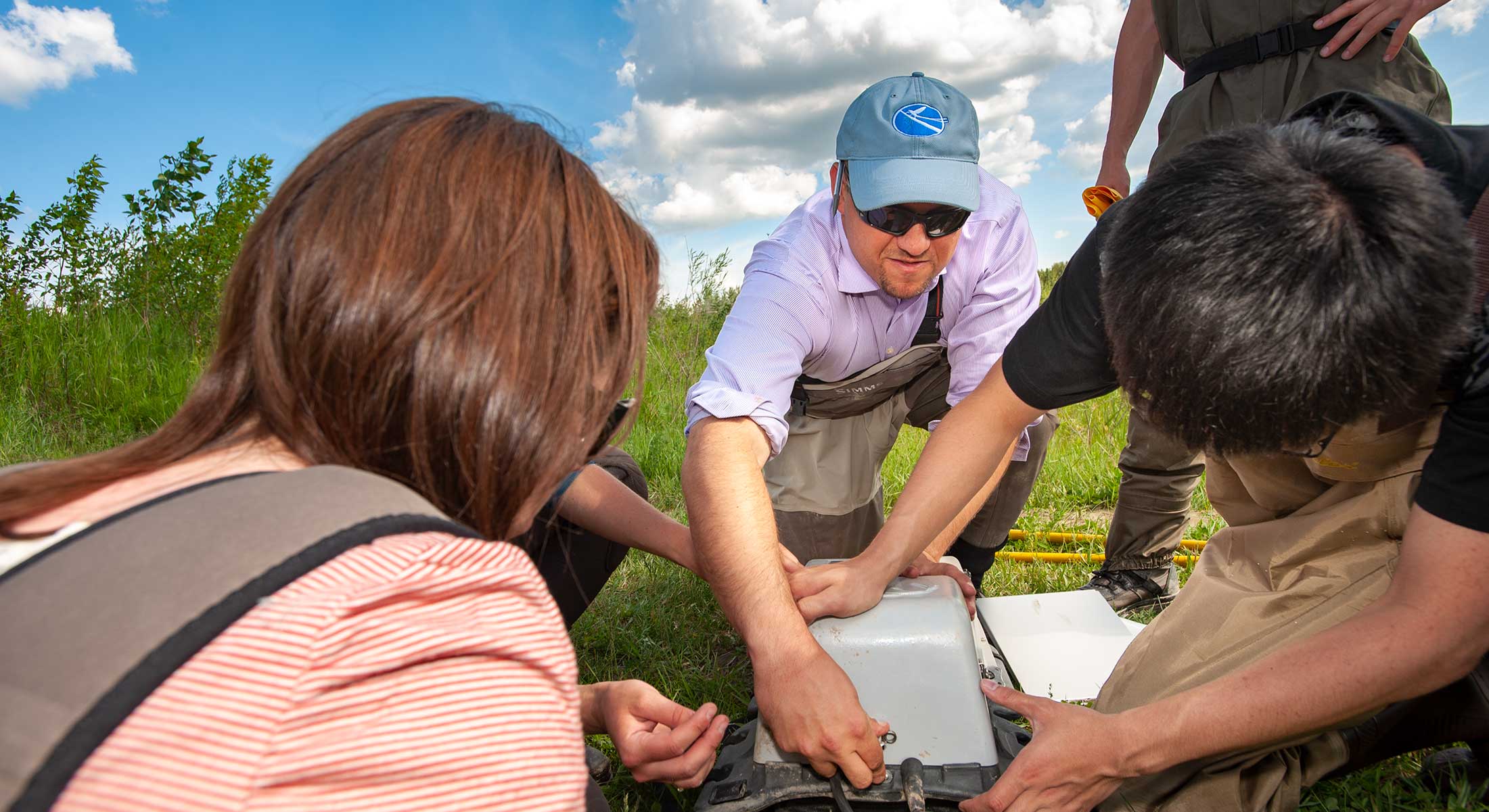Faculty + Staff

Faculty and staff at the University of Alberta are important facilitators of experiential learning opportunities. You might support students as they engage in hands-on learning in classroom, laboratory or research settings. Additionally, you can help support students in finding experiential learning opportunities to apply their academic knowledge within communities and work environments.
How experiential learning benefits students
By participating in experiential learning, students are able to engage in hands-on learning and often, this involves connecting with community or industry partners. You can help students get the most out of these experiences by guiding them to reflect on how their classroom learning translates in practical contexts. This helps to enrich students’ understandings of themselves, their field of study and their environments beyond the classroom.
How faculty can help students
At the University of Alberta, we are committed to supporting our ambitious students and ensuring that our graduates are not only educated and prepared for professional life, but that they are equipped to tackle the complex social, economic and environmental challenges they might encounter ahead. As faculty and staff, you are integral to this process by creating and organizing meaningful learning experiences for students.
Interim Approach for Sexual and Gender-Based Violence (SGBV) in EL Contexts
The University of Alberta is committed to student safety. We are currently developing an Experiential Learning (EL) Policy to foster high-quality, equitable and safe learning environments, including those beyond the traditional classroom.
Recognizing the urgent need to address gaps for those currently in programs, an interim approach is available which provides procedures for Deans and/or designated EL coordinators to support students and the learning environment in cases where a student may experience or cause harm. This approach applies exclusively to recognized EL opportunities for current University of Alberta students.
Both the interim approach and the policy under development prioritize student safety and well-being and are guided by a survivor-driven approach. A toolkit has also been developed as an additional resource for deans and designated EL coordinators to reference should SGBV incidents come to their attention.
For questions about the interim approach, please contact the Experiential Learning office at expwil@ualberta.ca.
Resources
- Review the Risk Management & Insurance page to ensure any experiential learning opportunities are established with caution and executed safely.
- Review the Health, Safety & Environment website to ensure adequate understanding of necessary health and safety precautions for working in the field and in laboratory environments.
- Connect with the Centre for Teaching and Learning (CTL). They offer a variety of support for teaching that can help you expand your skills and knowledge needed to deliver exceptional learning experiences. Not sure where to start? Schedule a consultation appointment to learn how they can support you and your teaching.
- For graduate student teachers and postdoctoral fellows, check out the Graduate Teaching and Learning Program to learn how you might enhance your teaching.
- Interested in mentoring a student researcher? Check out the Undergraduate Research Initiative (URI) page to access resources for mentors and supervisors, or to find out how you can encourage your students to get involved in research!
Access the Community Service-Learning (CSL) website to learn more about integrating CSL into an existing course or creating a new course with CSL.